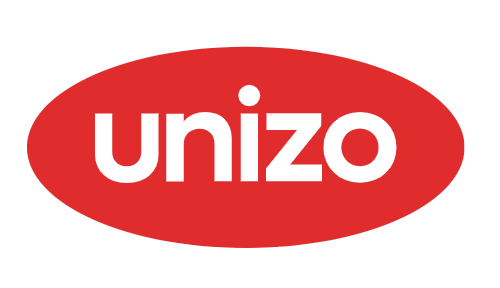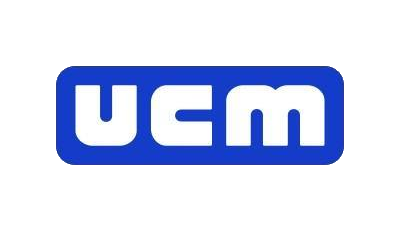When selling/buying a business, it is important to pay attention to certain legal formalities, and to carefully analyse the various different contracts signed by the seller.
Following is a list of the essential legal documents involved in the transfer of a business:
- Tax and social security debt clearance certificates. It is compulsory to obtain these certificates when selling a business.
- Contracts between the seller and third parties. This mainly concerns tenancy contracts, employment contracts and leasing contracts.
- The business transfer contract. We would like to draw your attention to a few key points that need to be addressed.
In all cases, we would advise you to enlist the help of a support structure (subsidised by the Region) or a transfer expert.
Regarding the authorities: certificates of no tax/social security debts
When a business is sold, the buyer is jointly and severally liable for payment of the tax and social security debts owed by the seller.
Tax and social security debts are, for example, unpaid taxes (withholding tax, IPP) and social security contributions.
What does it mean to be "jointly and severally liable"? Being "jointly and severally liable" means that the public authorities (FPS Finance, NSSO, NISSE) can ask the buyer to pay the debts (and even seize part of the business that has just been transferred), even if these debts were created before the sale of the business!
How to avoid joint and several liability?
To avoid joint and several liability, it is important that the buyer:
- notifies the tax and social security authorities of the sale
- ensures that no tax or social security debts are owed at the time of the purchase by requesting from each organisation a certificate stating that no debts are owed.
Notification of the purchase limits joint and several liability from before the purchase.
The process is as follows:
1. The seller requests a debt-free certificate from each body (FPS Finance and the NISSE, as well as the NSSO if there are employees):
- FPS Finance certificate
- NISSE certificate (manager(s))
- NSSO certificate (employee(s))
2. Each body has one month in which to issue (or refuse) the certificate. Two situations are possible:
- If there is a debt or an inspection in progress, the body will not issue a certificate. In this case, the purchaser should suspend (part of) the payment of the sale price until the end of the period of non-enforceability (i.e. until the end of the period during which the authorities may take action against the purchaser for unpaid tax and social security debts owed by the seller - see point 4).
- There is no debt and the body issues the certificate requested.
3. The parties then have 30 days to:
- Sign the business sale contract
- Send each body a certified copy of the transfer contract (you can request certification from your local council) and, if they have obtained it, a copy of the certificate(s). You should therefore send each body a certified copy of the contract, even if you have not obtained the debt-free certificates.
- How long does this period of joint and several liability last? This period is known as the period of non-opposability; it begins when the transfer is notified to the authorities (the certified copy) and finishes at the end of the following month. For example, if the sale contract is signed on 7 March, the FPS Finance/NISSE/NSSO will be able to take action against the buyer until 30 April. After this date, the authorities will only be able to collect their debt from the seller (for debts incurred while the business was still in the hands of the seller, of course).
Third parties: contracts signed by the seller and third parties.
Commercial lease
Buying a business often involves taking over a commercial lease.
First and foremost, check with your local planning authority to ensure that the intended use of the property allows you to carry on the business you have in mind (even if the business remains the same after the sale!). Hub.brussels can help you with this process free of charge (send an email to permit@hub.brussels).
As far as the lease contract itself is concerned, there are two possible scenarios:
- First hypothesis: The commercial lease authorises assignment of the lease contract or sublease.
- The transferee should notify the lessor of the transfer by registered letter.
- Second hypothesis: The commercial lease forbids assignment of the lease contract or sublease.
- The lease can still be assigned, but you will need to follow a specific procedure.
- We recommend the buyer include a clause in the business sale contract stipulating that the sale will only take place once the lease has been validly transferred.
Once the transfer has been completed, the original lessee (the seller) remains bound by the obligations of the lease for the duration of the lease. Consequently, if the transferee fails to pay the rent, the lessor can take action against the original lessee. It is therefore in the seller's interest to ensure that contact with the lessor is in order, and that a new lease agreement between the buyer and the lessor is signed.
Employee contracts
Employees are automatically transferred with the business. Staff must be maintained under the same working conditions to ensure continuity of the employment contract(s).
Workers employed in the company or part of a company transferred may not be dismissed on the transfer of the entity (CLA 32bis). In other words, they cannot be dismissed:
- either by the seller, shortly before the transfer, at the risk of having the employees claim the irregularity of the dismissal against the buyer even if they have not yet been taken over by the latter;
- or by the buyer, after the transfer.
It is therefore important that the buyer is fully aware of current employment regulations (particularly with regard to dismissal procedures, bonuses, vacations, etc.).
The former and the new employers are jointly and severally liable for the obligations arising from employment contracts. So, for example, the employee can sue either the seller or the buyer for any unpaid wages at the time of transfer. Alternatively, in the event of unlawful dismissal by the seller at a date close to the transfer date, the buyer may be required to pay the compensation for notice not paid by the seller.
Leasing contracts
These are not transferred. A leased vehicle will therefore not be included in the purchase of the business.
Other contracts
Generally speaking, the acquisition of a business involves the transfer of obligations arising from existing contracts. The buyer is therefore liable for any non-fulfilment existing at that date.
Other contracts may have been entered into by the seller, such as contracts with customers or suppliers. It is advisable to analyse them one by one (with the help of a legal expert or a support structure) in order to assign the various different contracts.
Regarding the seller/buyer: business transfer contract
Procedure
The business is transferred by means of a simple contract signed by the seller and the buyer. There is no need to follow any particular procedure (with the exceptions given below).
Just as a reminder, once the transfer has been completed, you should notify the tax and social security authorities (see above concerning certificates).
Exception
If the transfer of the business involves the transfer of a building or a real-estate right (usufruct, right to build, etc.), the deed should be drawn up before a notary.
Contents of the business
The parties agree on what is transferred and what is not, which is why it is so important to draw up a precise inventory of what is included in the transaction in order to determine the fair purchase price.
Generally speaking, the sale of a business includes the following elements:
- customers;
- leasehold rights;
- current contracts (supply, customers, etc.);
- the trade name;
- the website;
- furniture and equipment attached to the business (tools, vehicles, machinery, etc.) - be sure to include the inventory as an appendix to the transfer contract;
- industrial property rights relating to the operation of the business (trademarks, patents, designs, models, etc.);
- sales organisation
- Inventories of goods and raw materials
These elements should be clearly mentioned in the contract.
Money (cash or bank account) is not included in the transfer of the business.
Contractual Clauses
It is a good idea to include certain elements such as:
- A non-competition clause
- Guarantees
- The breakdown of the price (for example, €10 is allocated to customers, €20 to stock).
Many other clauses can be added to protect both the seller and the buyer. Contact a lawyer or a support structure.
Important points
- Seller married under the regime of communal property. If the business belongs to the common property of both vendor-spouses, both should sign the sales contract.
- Price. Prices are free except for chemist's.
- No pledges on the business. Check that the business is not pledged via the pledge register.
Conclusion
The various different legal documents reviewed in this article are essential to protect you as the buyer, avoid unpleasant surprises, and possibly reduce the purchase price.
For this reason, we strongly recommend that you call in external consultants to help you analyse the different documents.
Who can help me ?




